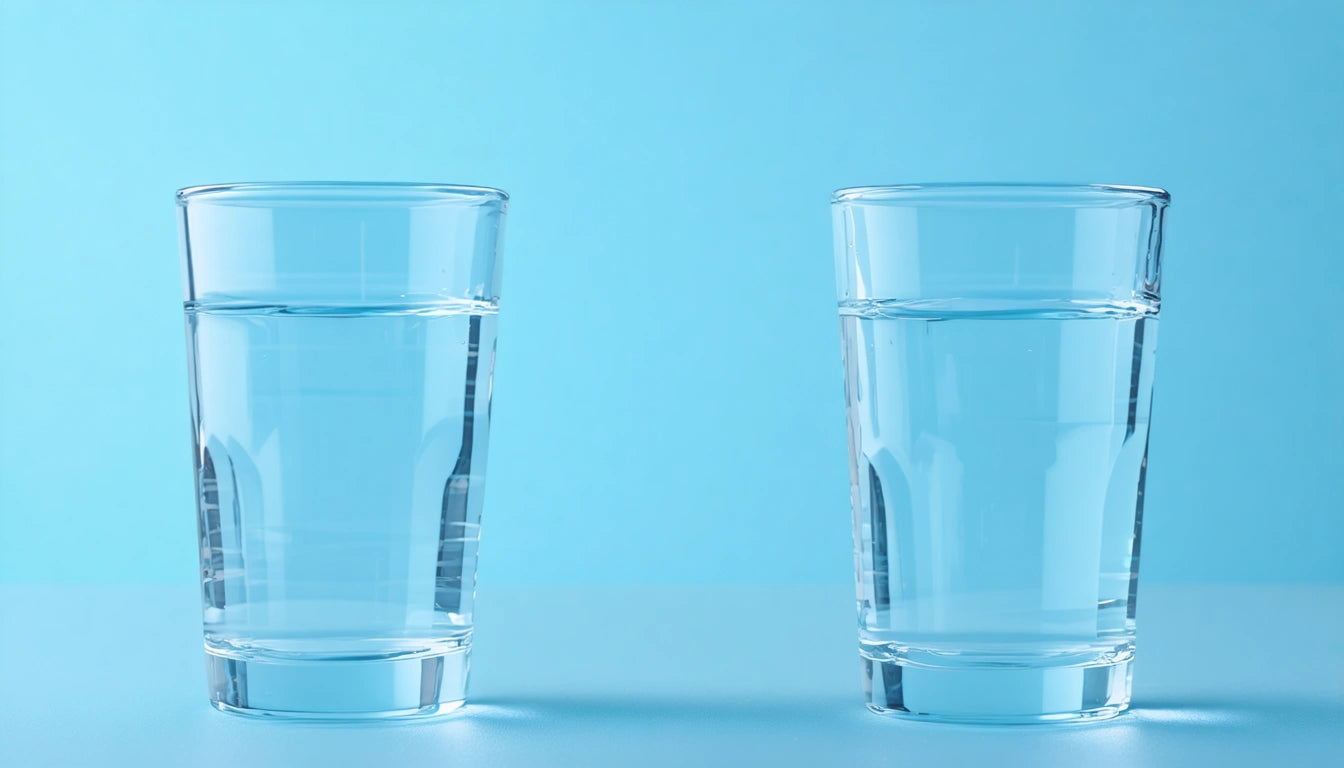Table of Contents
How Much Water Should You Drink to Pass a Drug Test?
When facing a drug test, many individuals wonder about proper hydration strategies. The question of how much water to drink to pass a drug test is common, but the answer requires understanding both the science of drug testing and the body's hydration mechanisms.
Understanding Hydration and Drug Testing
Urine tests remain the most common method of drug screening due to their cost-effectiveness and relatively simple collection process. Standard urine tests typically require 30-45 mL of sample, but the quality of that sample matters significantly.
Water consumption affects urine concentration, which can impact test results. When you drink water, your kidneys filter it and produce more dilute urine. This dilution can potentially lower the concentration of detectable substances below testing thresholds.
Optimal Water Consumption Before a Drug Test
The question of how much water should I drink before a drug test doesn't have a one-size-fits-all answer. However, medical professionals generally recommend:
- Drinking 2-3 liters (about 8-12 cups) of water distributed throughout the day before your test
- Consuming an additional 1-2 cups 2-3 hours before the test
- Avoiding excessive consumption that could trigger suspicion of deliberate dilution
According to guidelines for drinking water before tests, moderate hydration helps ensure you can provide an adequate sample while maintaining normal physiological parameters.
Risks of Excessive Hydration
While some believe that drinking excessive amounts of water will help pass a drug test, this approach carries significant risks:
First, laboratories specifically look for diluted samples. Dilution indicators such as creatinine levels, specific gravity, and color are routinely checked. Samples that appear deliberately diluted are typically flagged as suspicious, potentially requiring a retest under observation.
Second, consuming too much water in a short period can lead to water intoxication (hyponatremia), a dangerous condition where electrolyte balance is disrupted. This can cause symptoms ranging from headaches and confusion to seizures and, in extreme cases, death.
Timing Your Water Intake Strategically
When considering how much water to pass urine test requirements, timing matters as much as quantity. Strategic hydration involves:
- Starting increased water intake 24-48 hours before the test
- Drinking consistently throughout the day rather than all at once
- Urinating at least 3-4 times before providing your sample
- Avoiding first-morning urine, which contains higher concentrations of substances
This approach helps maintain a natural dilution level while ensuring you can provide an adequate sample. For those interested in proper preparation methods, our packaging resources for cannabis products often include educational materials about responsible consumption and testing awareness.
Supplementary Considerations for Test Preparation
Beyond just asking how much water should I drink to flush out drugs, consider these additional factors:
Creatinine Levels
Laboratories check creatinine levels to verify sample validity. Excessive water consumption without addressing creatinine can flag your sample. Some people take creatine supplements 2-3 days before testing to help maintain normal levels.
Vitamin B
B vitamins, particularly B2 (riboflavin) or B complex supplements, can help maintain the yellow color of urine even when somewhat diluted. This may prevent visual identification of dilution.
Electrolyte Balance
Maintaining electrolyte balance is crucial when increasing water intake. Sports drinks or electrolyte supplements can help prevent imbalances when following effective strategies for passing a urine drug test.
Remember that drug testing procedures continue to evolve, with laboratories implementing increasingly sophisticated methods to detect dilution attempts.
Hydration Best Practices for Accurate Test Results
When wondering how much water to drink before drug test appointments, focus on these best practices:
- Maintain normal hydration (2-3 liters daily) for several days before testing
- Avoid sudden changes in drinking habits immediately before the test
- Consider the test type; urine tests are affected by hydration differently than blood or saliva tests
- Follow any specific pre-test instructions provided by the testing facility
- Be aware that proper preparation involves more than just water consumption
Rather than focusing solely on how much water to pass drug test requirements, a holistic approach to health and testing preparation is more effective and safer. This includes understanding testing procedures, maintaining overall health, and following legitimate preparation guidelines.
The most reliable approach to passing a drug test remains abstention from substances for an appropriate clearance period. Water consumption should be viewed as a normal part of health maintenance rather than a primary strategy for test manipulation.











Leave a comment
All comments are moderated before being published.
This site is protected by hCaptcha and the hCaptcha Privacy Policy and Terms of Service apply.